
This is the tenth in a series of fifteen planned reviews of the films of John Flynn. During his 33-year career, Flynn directed everything from intimate character studies of volatile, potentially violent men to dark revenge films to early Steven Seagal vehicles and everything in between. Utilizing a spare style of filming that subscribed to the idea that the audience should not be aware of the director, Flynn placed an emphasis on strong performances and cleanly shot and edited action sequences that showcased impressive stunt work. His films show how a director with a clear vision can elevate even the most generic potboiler into a sturdy genre film worthy of rediscovery, yet most film buffs do not know his name.
Is it just me, or has Sylvester Stallone had a bit of an obsession at times with sending his characters to prison? Just off the top of my head (I am sure there are more than this), I can think of him playing characters wrongly imprisoned in FIRST BLOOD, TANGO & CASH, ESCAPE PLAN, JUDGE DREDD, and DEMOLITION MAN. It is a strange theme running through his films that I did not notice until I was re-watching LOCK UP for this series. I do not necessarily think it says anything about Stallone’s personal life or hints at some hidden persecution complex, but it does say something about the ability of John Flynn to take yet another well-worn conceit (even if I didn’t realize that “Stallone in prison” was a well-worn conceit until now) and bring a little more grit and craft to it than most directors—even when he is fighting against a lumbering, sappy screenplay.
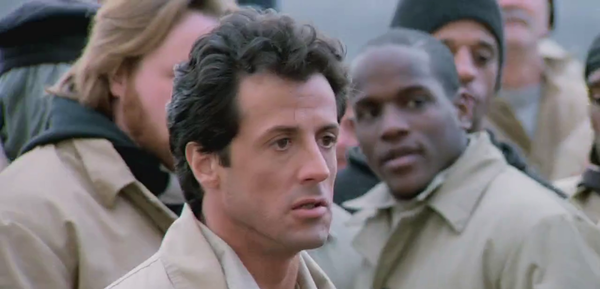
The main difference between LOCK UP and other films that throw Stallone in the clink is that here he is not wrongly imprisoned—at least, not at first. The film features Stallone toward the end of his initial movie star reign that began with ROCKY and went through the ridiculous action vehicles in the ’80s. That means that instead of being an actual criminal, his character Frank Leone is in prison for reasons that can be seen as valiant (vigilante violence against criminals that assaulted the elderly man who took him in as a child), but are no less deserving of state-mandated punishment. It is a subtle compromise that only slightly undercuts the initial idea of a decent man paying his debt to society who gets screwed over by the system. But those subtle compromises add up a little too much by the end of the film.
As the film starts, Frank is doing “easy time.” He is in a minimum-security prison where he is on friendly terms with the guards and the other inmates. He gets weekend furloughs to spend time with his girlfriend Melissa (Darlanne Fluegel—wasted in a nothing role) and prepare his garage to be open for business upon his eventual release. With only six months left on his sentence, life is about as good for Frank as it can get for an incarcerated individual.
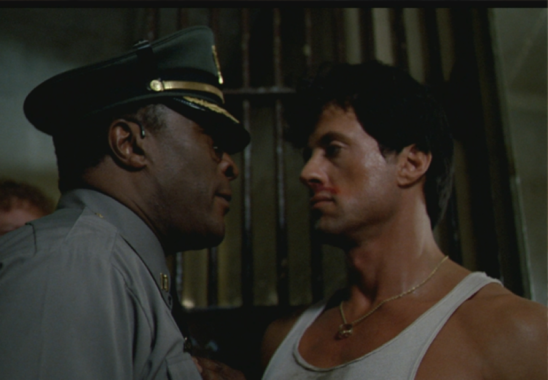
But things quickly go sideways when Drumgoole (Donald Sutherland), the vindictive warden of a brutal maximum-security prison, has Frank transferred to his facility in order to get revenge for reasons that are best left to learn by watching the movie. I will say—given their history—that the legality of Drumgoole’s transferring of Frank is the biggest leap in logic the film takes. But I guess that particular piece of plotting is a good litmus test for whether you will be on board for what essentially feels a little like Stallone and Flynn doing their bizarre-o world version of THE SHAWSHANK REDEMPTION before that movie even existed.
LOCK UP is a strange movie. Despite being a prison film, it is surprisingly soft when it comes to the portrayal of violence—especially one that stars Stallone. It is not an action film (for most of the way—more on that later), playing closer to a tragic melodrama about the humiliation and dehumanization heaped upon convicts. At the same time, Stallone seems to have confused the character of Frank with Rocky. He spends long scenes proactively giving shallow, long-winded advice on how to live an honest, ethical life to fellow “criminals-with-hearts-of-gold” who all have silly nicknames like First Base (Larry Romano), Eclipse (Frank McRae), and Dallas (Tom Sizemore). Frank even shares Rocky’s tendency to outwardly project the sunniest, slightly naïve disposition a perpetually down-on-his-luck guy can have. The connection to the character of Rocky is even carried through with Bill Conti’s treacly score that is as out of place in the film as its goofy feel good montage of Frank and the boys restoring an old Ford Mustang that Eclipse just happens to have sitting in the prison garage.
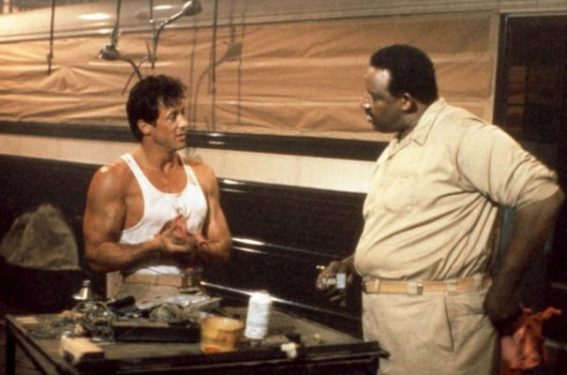
In several ways, LOCK UP feels like another attempt by Flynn to meld old school melodrama with the potential for violence to break out in the similar vein of 1980’s DEFIANCE. While LOCK UP is certainly a slicker piece of work (with the budget for a Stallone vehicle at Flynn’s disposal, that should be a given), it runs into the same tonal problems that plagued that earlier film. Namely, the difficulty navigating the disconnect between telling a sincere tale of good men dehumanized in prison and Sutherland’s cartoonish, over-the-top, supervillain turn. Hell, he even has a slick mustache that it looks like he wants to twirl during his more evil moments. I wonder if Flynn left those bits on the cutting room floor?
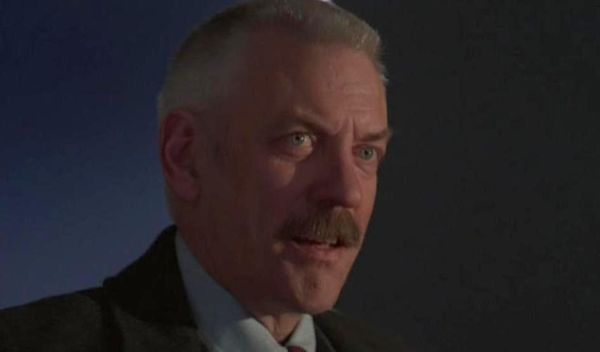
There are three credited writers (Richard Smith, Jeb Stuart, and Henry Rosenbaum) on the film. I have no idea who was responsible for the original draft, but I would love to see what the early drafts of this screenplay were like. My guess is that the demands of Stallone as the lead are what led to such a seemingly soft take on the material. Even as Drumgoole manipulates events in the prison to put Frank in a position where he may have to kill (all but assuring a life sentence) or be killed, a goofy scene of improbable bonding between Frank and another “aw shucks, I’m really just a big softie” inmate is right around the corner. It says something about Sizemore’s epic talent at giving off a sleazy vibe that Dallas is written as jovial comic relief, but he still manages to come across as an actual criminal and not just a decent guy with bad luck.
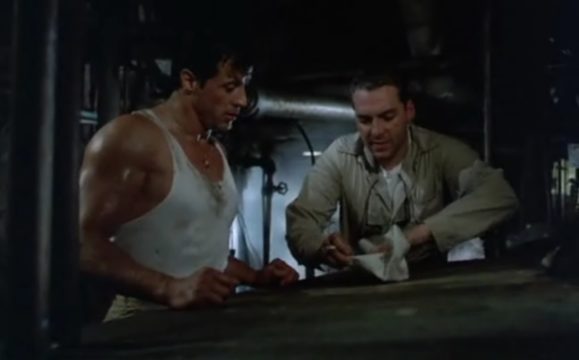
I don’t recall the critical response to LOCK UP when it opened, but I am sure it took a drubbing. If so, I can understand that, but I didn’t hate the film. There is enough good stuff between the margins courtesy of John Amos as a hard-case guard and a gritty, brutal football game that finds Frank repeatedly knocked down hard into the mud before standing up to take more punishment. Amos’ direct performance, the football game, and a couple of honestly brutal fights between inmates feels like classic Flynn amidst a different film that pulls its punches.
The third act goes ridiculous in its sudden action movie beats. But as crazy as the film becomes to wrap up the Frank/Drumgoole plot, at least finally settling on being an action flick gives the film clarity of purpose that plays to Flynn’s strengths. This section of the film sports the lean dialogue, clear blocking of action, and sharp editing that Flynn does so well. Considering how close LOCK UP came to drowning in schmaltz, it is a relief to see Stallone finally embrace his ’80s action movie persona and kick ass in an effort to clear his name—even if the scenes feel grafted on from a different movie.
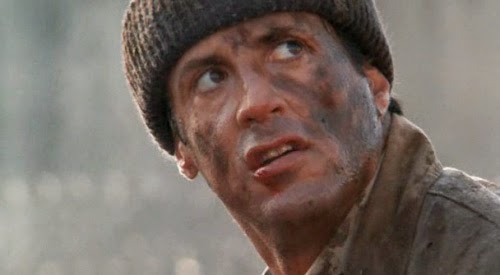
LOCK UP was the beginning of the run of films later in Flynn’s career where it feels more like he became a journeyman director making movies that followed the whims of producers and stars. He followed this film with OUT FOR JUSTICE, an uneasy mash up of over-the-top action and stroking of Steven Seagal’s ego. Both films showed how Hollywood had come to care more about the bankability of an action star than in allowing a good director to make the best film possible. It is hard to see a once-great director like Flynn being slowly crushed under the weight of the studio machine, but to a certain extent, that is what is starting to happen here.
As hard of a time as I give LOCK UP, Stallone’s goofy charm when playing good-hearted, yet dim heroes and Flynn’s straight-forward direction keep it from turning into the very similar, yet incredibly silly Tom Selleck vehicle AN INNOCENT MAN and the pure idiocy of TANGO & CASH that were also released in 1989 (it was a big year for sending stars to prison). It may be a total mess, but there is something weirdly compelling about the uneven mixture of melodrama, odd comedy bits, and then the left turn into action movie territory, but unlike OUT FOR JUSTICE, it never feels as though LOCK UP had the potential for greatness yet settled for stroking the star’s ego. There was not a great film lost somewhere in the editing room. This was a messy idea given a suitably messy presentation.
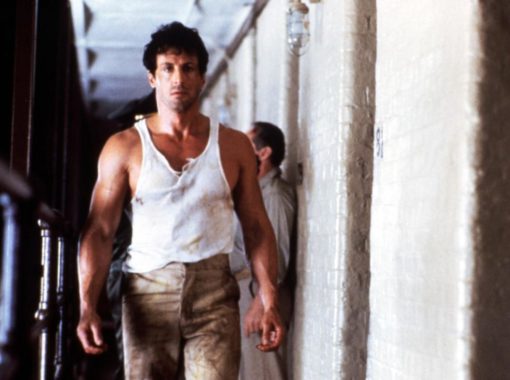
But messy is a small price to pay for Flynn’s continued attempts to revive melodrama (after THE SERGEANT, DEFIANCE, and TOUCHED) as a viable genre. That a director who was so good at action and dark as hell crime dramas would be so invested in such an old-fashioned genre is endearing. I give credit to Flynn for never giving up on it, no matter how uneven the results were.
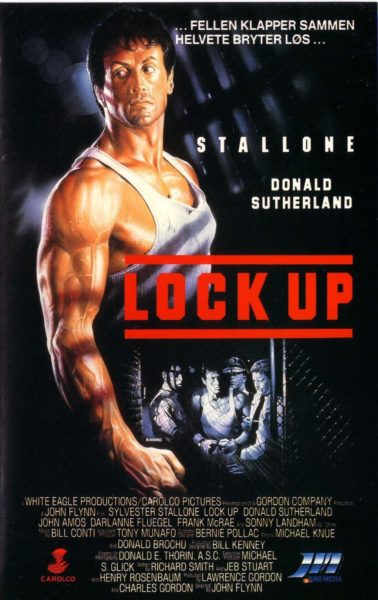
–Matt Wedge (@MovieNerdMatt)
Catch up on previous episodes of our John Flynn retrospective!

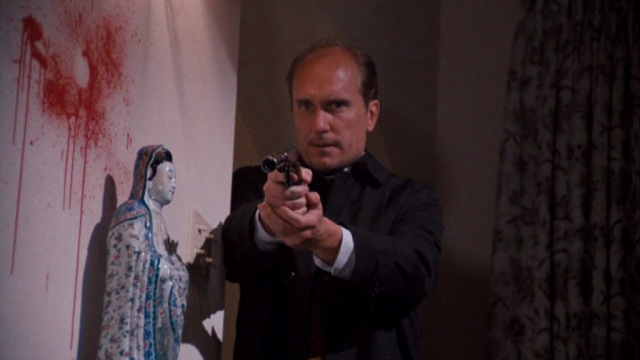

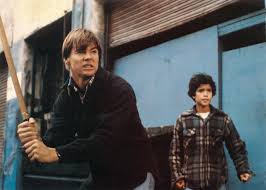
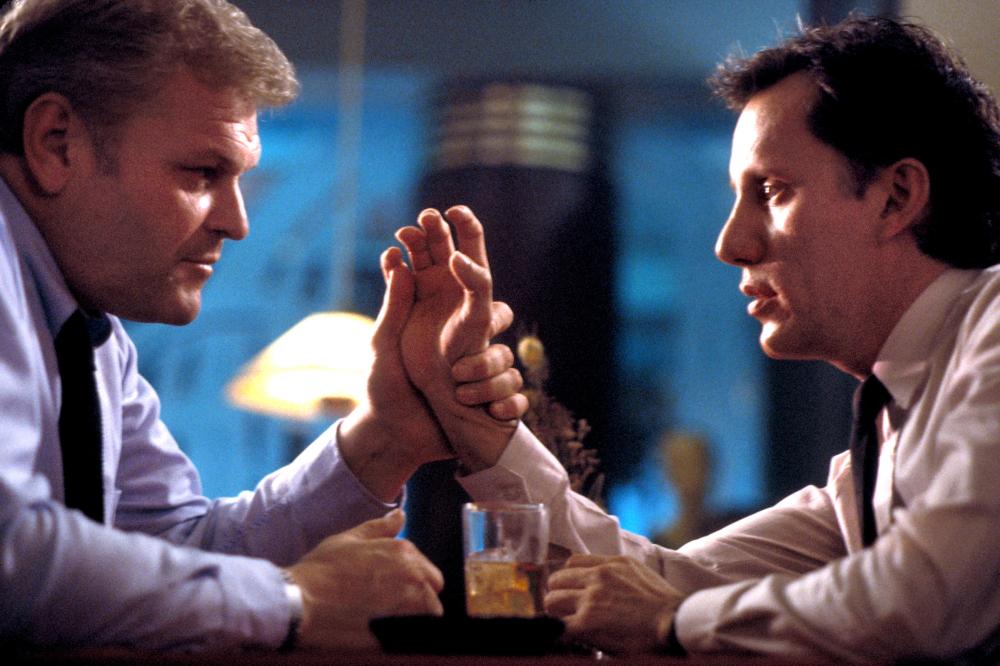
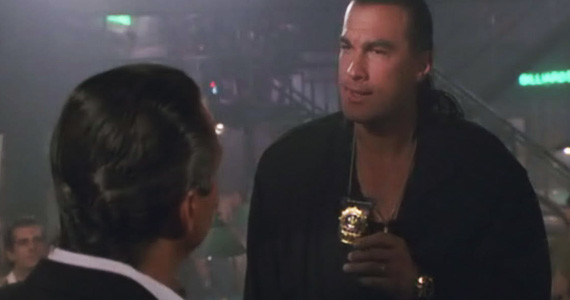
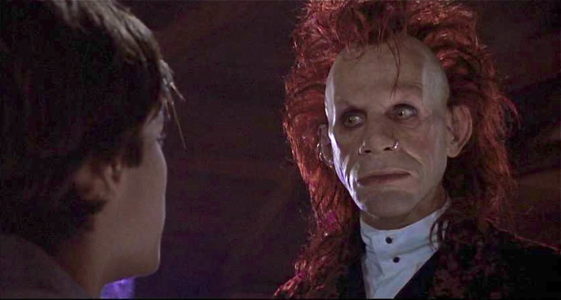
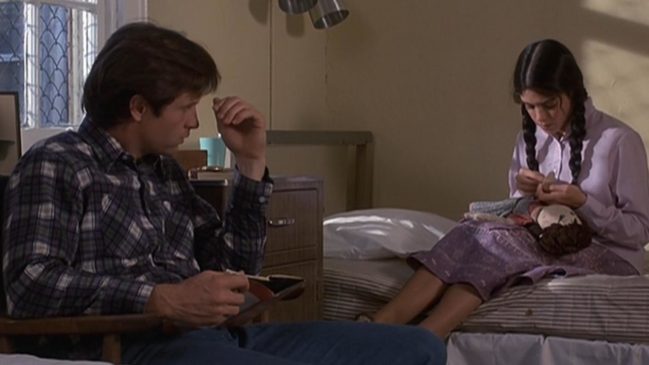
Tags: Bill Conti, Darlanne Fluegel, Donald Sutherland, Frank McRae, Henry Rosenbaum, Jeb Stuart, John Amos, john flynn, Larry Romano, Lock Up, Melodrama, Prison Movies, Richard Smith, Sylvester Stallone, Tom Sizemore

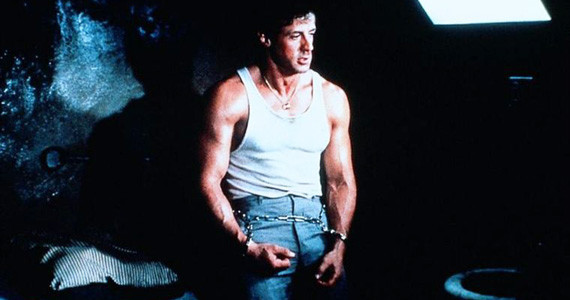
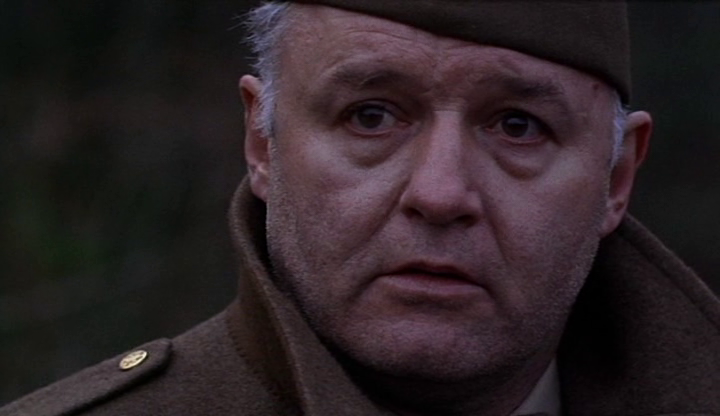
No Comments